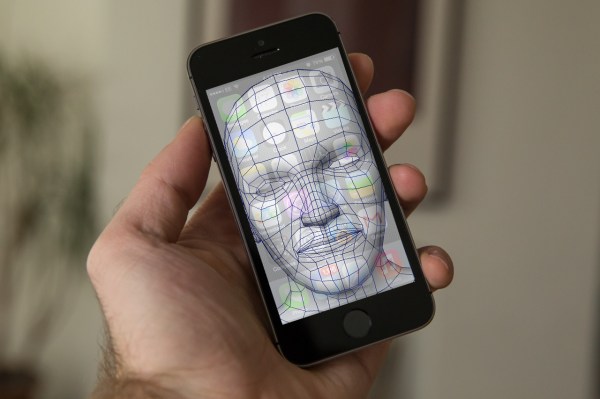Apple has been issued a patent by the USPO today (via AppleInsider) that describes a system for using facial recognition and detection on a mobile or desktop computing device. This could work a lot like the Android face unlock option, which has been criticized before for its fallibility, but is also designed to prompt activity and use facial expressions as input for controlling the device.
This could be used to not only protect data on an iPhone in a locked state, but also determine how much information is shared on the lock screen for a user. So if a person is receiving a call and their iPhone recognizes them (determined by a number of factors, including skin tone, vectors, feature distance and size, etc.) then it’ll display caller ID and information from the user’s contacts app. If it’s not someone the phone has listed as a user of the device, it’ll block all that data.
Likewise with emails or messages, it could scrub the content of any actual info until there’s a positive recognition match for a phone’s rightful user. In a desktop computing context, the recognition could be used to analyze a user’s behavior over time as they sit in front of their Mac, determining when to trigger certain actions like screen savers, or enter a movie mode, or switch audio devices to prepare for a Skype call, for instance.
Apple has just acquired PrimeSense, the Israeli firm that helped created the original Microsoft Kinect’s motion sensing capabilities, so it’s tempting to link the two, even though the Apple patent far pre-dates that subsequent deal. Still, Apple has shown that it places a premium on innovation that helps users access their device more securely and more conveniently with the introduction of the iPhone 5s fingerprint sensor, and this could provide a way to allow users more access to things like Siri from the lockscreen, without the privacy compromises that come along with some of the assistant’s more useful convenience features.
